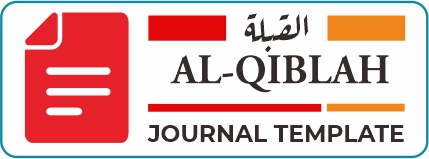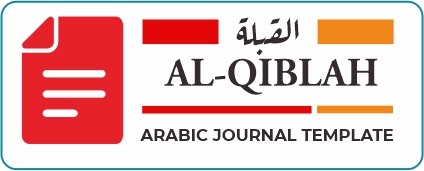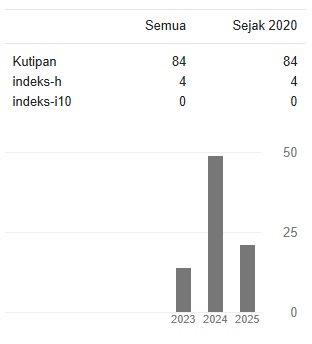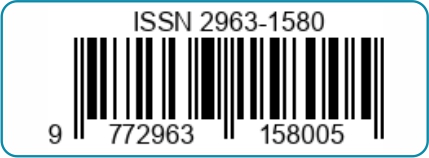Aturan Penggunaan Smartphone bagi Mahasiswa dalam Tinjauan Kaidah Sadd al-Żarī’ah (Studi Kasus Asrama Putra STIBA Makassar)
Rules for Smartphone Use Among Students in the Perspective of the Uṣūl Fiqh Principle of Sadd Al-Żarī’ah (Case Study at the Male Dormitory of STIBA Makassar)
DOI:
https://doi.org/10.36701/qiblah.v4i2.2035Keywords:
Rules, Smartphone, Students, Sadd al-Żarī’ah, Male Dormitory of STIBA Makassar.Abstract
This research aims to examine the practices regarding the implementation of smartphone usage rules among university students through the perspective of the uṣūl fikih principle of sadd Al-Żarī’ah at the Male Dormitory of STIBA Makassar by identifying two research questions: how the smartphone usage rules are applied within the dormitory environment and how the uṣūl fikih principle is evaluated in the context of the existing regulations. The study employs a qualitative approach using field research design that integrates normative, uṣūl fikih, case, and psychological approaches, with primary data obtained through interviews and secondary data sourced from the Qur’an, hadith, scholarly texts, academic journals, and the internet. The findings indicate that the smartphone usage regulations at the dormitory have been codified in a student handbook and classified into three categories, namely, usage permitted under certain conditions, usage subject to restrictions, and usage absolutely prohibited, with three main types of violations identified: dissatisfaction and protests against the rules, covert and excessive usage, and serious breaches of religious law. The application of the uṣūl fikih principle of sadd Al-Żarī’ah is deemed appropriate based on the principle of maslahat, considering that STIBA is an institution with a dormitory system where all students are required to live together, thereby necessitating strict regulations to prevent declines in academic performance, moral standards, and ethical conduct. The implications of this research are expected to serve as an important reference for the development of literature and policies in the educational sector, particularly for boarding schools or dormitory-based universities such as STIBA Makassar, as well as to provide a positive contribution as a source of information for academics and the general public.
Downloads
References
Aḥdal, Aḥmad ibn Yūsuf ibn Muḥammad al-. Al-Akhlāk al-Zākiyah fi Adabi al-Ṭālib al-Marḍiyyah. Bairūt: Dār Iḥyāa al-Turāṡ, t.th.
al-Ṣuyūṭī, Abdurraḥmān ibn Abū Bakar. al-Asybāh wa al-Naḏāir. Beirut: Dār Kotob al-Ilmiah, 1991.
al-Tarmiżī, Abū ‘Isā. Sunan Al-Tarmiżī Juz 2. Bairūt: Dār Iḥyāa al-Turāṡ, t.th.
Dahri, Ihsan. Wawancara, Pembina Keasramaan, STIBA Makassar, 3 Juni 2023.
Jamil, Muhammad Faishal. Pengaruh Kontrol Diri Dan Smartphone Addict Terhadap Kecenderungan Perilaku Prokrastinasi Pada Mahasiswa Fakultas Psikologi Universitas Islam Negeri Maulana Malik Ibrahim Malang. Skripsi. Malang: Fakultas Psikologi UIN Maulana Malik Ibrahim, 2018.
Kementerian Agama Republik Indonesia. Terjemah Tafsir Perkata. Bandung: Syamil al-Qur’an, 2010.
Kementerian Agama Republik Indonesia. Al-Quran Dan Terjemahannya. Indonesia: Lajnah Pentashihan Mushaf Al-Qur’an, 2022.
Muna, Resti Fauzul. “Hubungan Antara Kontrol Diri Dengan Kecenderungan Kecanduan Media Sosial Pada Remaja Akhir.” Jurnal Empati (2014): 1.
Rizkaningrum, Shinta Devi. Pengaruh Tipe Kepribadian Extraversion Terhadap Kecenderungan Adiksi Smartphone Pada Mahasiswa Psikologi Di Unwidha Klaten. Skripsi. Klaten: Fakultas Psikologi Universitas Widya Dharma, 2022.
Syandri, dkk. Pedoman Mahasiswa di Lingkungan Sekolah Tinggi Ilmu Islam dan Bahasa Arab (STIBA) Makassar. Cet. 1. Makassar: STIBA Makassar, 2022.
Yāsir ibn Aḥmad ibn Maḥmūd. Mawsū’ah al-Raqāiq wa al-Adab. Cet. I. Bairūt: Dār Iḥyā al-Turāṡ, t.th.
Jurnal
Hastini, Lasti Yossi, dkk. “Apakah Pembelajaran Menggunakan Teknologi Dapat Meningkatkan Literasi Manusia Pada Generasi Z di Indonesia.” Jurnal Manajemen Informatika (JAMIKA) 10, no.1 (2020): 13.
Sumber Online
“Berapa Pengguna Internet Indonesia per 2022.” Fortune Indonesia. Diakses 18 Januari 2023. https://www.fortuneidn.com/tech/luky/berapa-pengguna-internet-indonesia-per-2022-berikut-datanya.
“66,3% Masyarakat Indonesia Memiliki Smartphone.” Indonesia Baik. Diakses 18 Januari 2023. https:// indonesiabaik.id/ infografis/663-masyarakat-indonesia-memiliki-smartphone-8.
Pusparisa, K. Yospha. “Berapa Jumlah Pengguna Smartphone Dunia.” Databoks Katadata. Diakses 18 Januari 2023. https://databoks. katadata.co.id/ datapublish/2020/01/20/berapa- jumlah- pengguna-smartphone-dunia.
“Profil Singkat.” Situs Resmi STIBA Makassar. Diakses 18 Januari 2023. https://stiba.ac.id/tentangstiba/profil/.
Wawancara
Ahmad, Khairul. Wawancara, Mahasiswa, STIBA Makassar, 1 Juni 2023.
Akbar, Muhammad. Wawancara, Ketua Umum UKK Keasramaan, STIBA Makassar, 25 Mei 2023.
Dahri, Ihsan. Wawancara, Pembina Keasramaan, STIBA Makassar, 3 Juni 2023.
Farhan, Muhammad. Wawancara, Mahasiswa Semester 4, STIBA Makassar, 29 Mei 2023.
Ihsani, Yusran. Wawancara, Mahasiswa Persiapan Bahasa, STIBA Makassar, 30 Mei 2023.
Kahfi, Muhammad. Wawancara, Mahasiswa Persiapan Bahasa, STIBA Makassar, 30 Mei 2023.
Qasim, Sirajuddin. Wawancara, Kepala Bagian Keasramaan, STIBA Makassar, 5 Juni 2023.
Syandri. Wawancara, Kepala Bagian Hukum dan Keamanan STIBA, STIBA Makassar, 7 Juni 2023.



 FOCUS AND SCOPE
FOCUS AND SCOPE EDITORIAL TEAM
EDITORIAL TEAM












